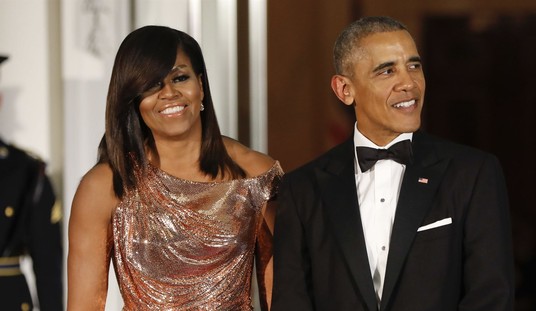The State Department’s undersecretary for Arms Control and International Security told Congress today that, despite Russia’s long history of cheating on arms agreements, the Obama administration had no idea Russia was violating the INF treaty when the president rammed the New START treaty through Congress during his first term.
“Over the last three decades, there have been compliance and implementation issues with first the Soviets and then the Russians on a variety of agreements. Former officials of both Republican and Democratic administrations and their colleagues in Congress were forced to grapple with many of the same problems we face today,” Under Secretary of State Rose Gottemoeller testified before a joint hearing of the House Armed Services Subcommittee on Strategic Forces and the House Foreign Affairs Subcommittee on Terrorism, Nonproliferation, and Trade.
“How do we resolve violations when faced by blatant denials? How do we work with allies and partners on these challenges to ensure a unified and proportionate response? These are not easy questions to answer. This is not easy work to accomplish.”
Gottemoeller tried to assure the committees that “the administration takes compliance with all arms control agreements extremely seriously.”
“I just wanted to say that we had no information or indication in 2008 that the Russian Federation was violating the treaty,” she said of the Intermediate-Range Nuclear Forces Treaty. “That information emerged in 2011.”
“Since 2013, we have raised with Russia our serious concerns regarding conduct that we ultimately determined to be a violation of the INF Treaty and have held senior-level and technical-level bilateral discussions with the aim of returning Russia to verifiable compliance with its treaty obligations.”
Gottemoeller cited “a serious Russian violation of one of the most basic obligations under the INF Treaty,” adding later that the administration “simply did not know until later in the test series that it was a ground launch system.”
However, “Russia continues to be unwilling to acknowledge its violation or address our concerns” as “their denials and counteraccusations clearly attempt to deflect attention from their own violation.”
Brian McKeon, principal deputy undersecretary of Defense for policy, said the Joint Staff “conducted a military assessment of the threat posed by Russia if it were to deploy an INF Treaty-prohibited ground launch cruise missile in Europe or the Asia-Pacific.”
“This assessment tells us that the deployment of such a system would increase risk to our allies and pose an indirect threat to the United States,” McKeon warned, adding that lawmakers would hear more about the threat in closed session.
“Moscow’s nuclear saber rattling has raised questions about Russia’s commitment to strategic stability. In light of this new strategic reality, the administration determined that we needed to consider Russian actions with regard to the INF Treaty in the context of its overall aggressive and bellicose behavior that flouts international legal norms and destabilizes the European security order,” McKeon said.
“Russia is not violating the INF Treaty in isolation from its overall aggressive behavior. Therefore, we concluded that our responses cannot focus solely on the INF Treaty. Stated another way, this is not just an arms control issue. But it represents a broader challenge to transatlantic security.”
The Defense Department, he said, is “developing a comprehensive response to Russian military actions and are committing to investments now that we will make irrespective of Russia’s decisions to return to compliance with the INF Treaty.”
That response will include taking “necessary steps to build U.S. and NATO capabilities, posture and plans to deter Russia’s destabilizing influence, coercion and aggressive actions all while keeping the door open for cooperation when and if Russia is willing.”
Gottemoeller told lawmakers that the United States will remain a party to the treaty for national security reasons, and Russia would stay as well.
“They have been saying quite regularly, and publicly, that they are in compliance with the INF treaty, which we don’t buy, but also that they are not preparing to withdraw from the treaty which I think is a good thing, because it allows us to continue to drive forward, pursuing them diplomatically, as well as with other responses and countermeasures,” she said.
“I don’t know why they’d want to withdraw. They’re not having to comply with it, anyway,” quipped Armed Services Subcommittee Chairman Mike Rogers (R-Ala.).
Gottemoeller said later in the hearing that the administration is “puzzled” by Russia’s desire for a ground-launched cruise missile system in violation of the treaty in the first place — “because we see they have, in our view, adequate capabilities to cover these threats with other systems at their disposal and that are entirely in accord with the INF Treaty.”









Join the conversation as a VIP Member